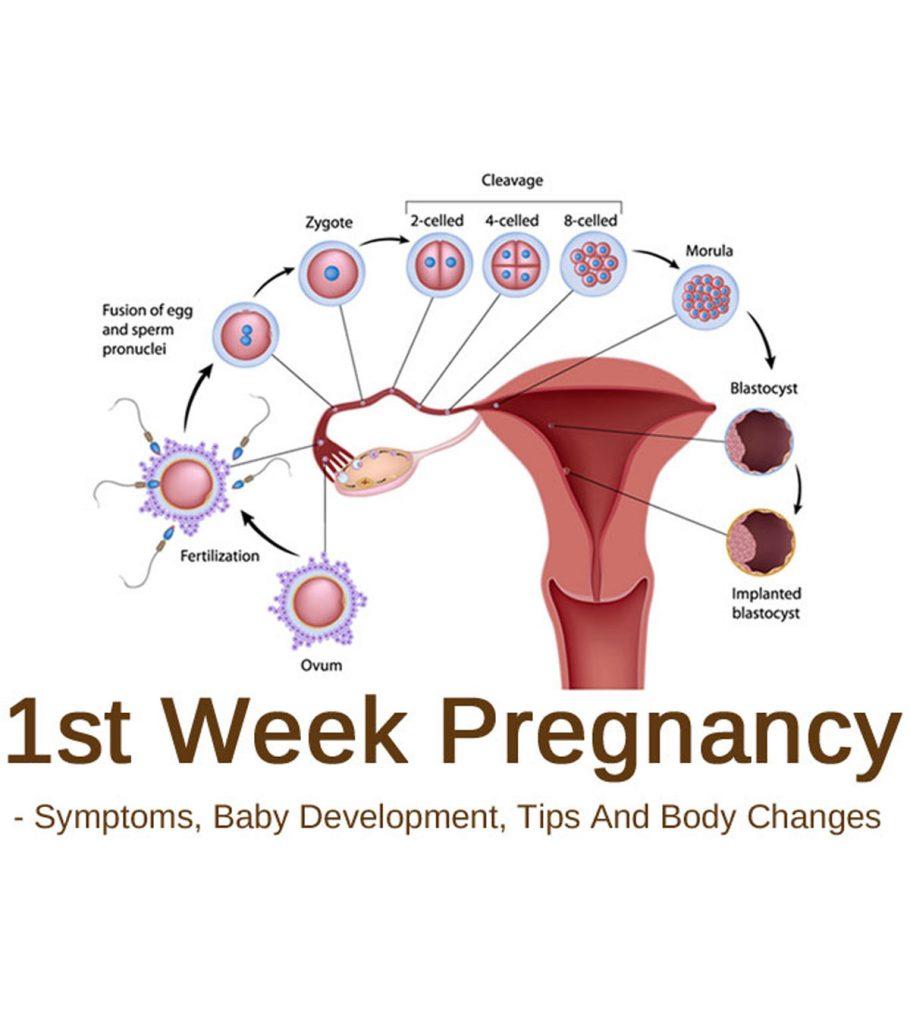
Pregnancy Symptoms Week 1: A Comprehensive Guide
The journey of pregnancy begins with a single fertilized egg, marking the start of a remarkable transformation. While the first week of pregnancy may not present any noticeable physical symptoms, subtle changes are already taking place within the woman’s body. Understanding these early signs can provide valuable insights into the health and progress of the pregnancy.
Implantation: The Foundation of Pregnancy
The first week of pregnancy is primarily characterized by the implantation of the fertilized egg into the lining of the uterus. This process, which typically occurs around 6-12 days after fertilization, is crucial for the establishment and growth of the embryo.
Hormonal Shifts: A Cascade of Changes
Implantation triggers a surge in hormone levels, particularly human chorionic gonadotropin (hCG). This hormone is responsible for maintaining the pregnancy and preventing menstruation. As hCG levels rise, they can lead to a range of early pregnancy symptoms.
Early Pregnancy Symptoms: Subtle Signs of Change
While many women may not experience any noticeable symptoms during the first week of pregnancy, some may encounter subtle changes, including:
- Breast tenderness: Hormonal shifts can cause the breasts to become more sensitive and swollen.
- Fatigue: The body’s increased production of progesterone can lead to feelings of tiredness and exhaustion.
- Nausea: Morning sickness, although typically associated with later stages of pregnancy, can occasionally occur in the first week.
- Light spotting: Some women may experience light vaginal bleeding around the time of implantation, known as implantation bleeding.
Other Potential Symptoms
In addition to the above, some women may also experience:
- Frequent urination: Increased blood flow to the pelvic area can put pressure on the bladder, leading to more frequent urination.
- Mood swings: Hormonal fluctuations can affect mood, causing irritability or emotional sensitivity.
- Headaches: Hormonal changes and increased blood flow can contribute to headaches.
- Bloating: Progesterone can cause the muscles of the digestive system to relax, leading to bloating and constipation.
What to Expect
It’s important to note that not all women experience the same symptoms during the first week of pregnancy. Some may have no noticeable signs, while others may encounter a combination of the symptoms mentioned above. The intensity and duration of these symptoms can also vary from woman to woman.
When to Seek Medical Attention
While most early pregnancy symptoms are normal, it’s essential to seek medical attention if you experience:
- Severe abdominal pain: This could indicate an ectopic pregnancy, a life-threatening condition where the fertilized egg implants outside the uterus.
- Heavy vaginal bleeding: Excessive bleeding can be a sign of miscarriage or other complications.
- Fever: A fever during pregnancy can be a symptom of infection.
- Persistent vomiting: Severe nausea and vomiting can lead to dehydration and electrolyte imbalances.
Confirming Pregnancy
A home pregnancy test can provide a preliminary indication of pregnancy, but it’s recommended to confirm the results with a healthcare provider. A blood test can accurately detect hCG levels, while an ultrasound can visualize the developing embryo and assess its location.
Tips for a Healthy Pregnancy
To support a healthy pregnancy from the very beginning, consider the following tips:
- Take prenatal vitamins: Folic acid and other essential nutrients are crucial for fetal development.
- Maintain a balanced diet: Eat a variety of nutrient-rich foods to provide the necessary building blocks for the growing baby.
- Stay hydrated: Drink plenty of fluids to prevent dehydration and support overall well-being.
- Get regular exercise: Moderate physical activity can promote circulation and reduce pregnancy-related discomfort.
- Manage stress: Stress can affect both the mother and the developing baby. Find healthy ways to cope with stress, such as yoga, meditation, or spending time in nature.
- Avoid harmful substances: Smoking, alcohol, and certain medications can harm the fetus.
- Get enough sleep: Rest is essential for both the mother and the developing baby. Aim for 7-9 hours of sleep each night.
Conclusion
The first week of pregnancy is a time of subtle changes and the foundation for a remarkable journey. While not all women experience noticeable symptoms, understanding the potential signs can provide valuable insights into the health and progress of the pregnancy. By following healthy habits and seeking medical attention when necessary, women can support a healthy pregnancy from the very beginning.